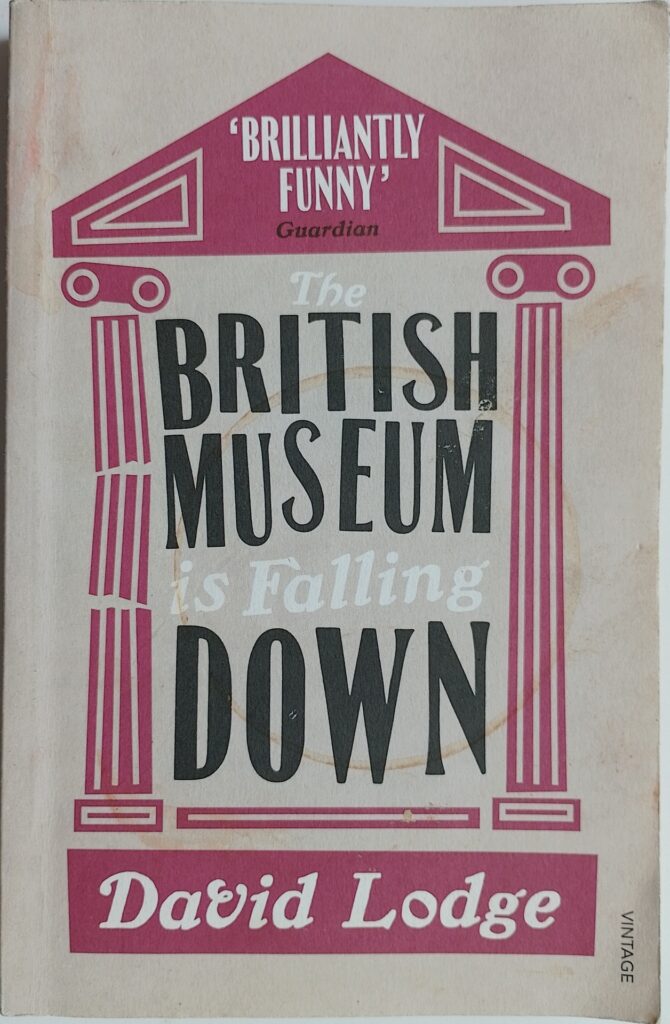First Published 1965. Vintage, paperback, 2011, pp 176, c.55,000 words.
What a quaint book this is. It has very old-fashioned feel and was almost out of date when it was written. A thick fog permeates London during the action, which is something that had faded out since the clean air act was passed in 1956 and the last significant fog in London lasted three days in December 1962. The other major anachronism is the protagonist’s and his wife’s attempts to not have any more children despite trying to adhere to the doctrine of their Catholic faith (so much has been revealed since about the fallibility of that church at all levels, all over the world, since this was written.)
Lodge is a clever writer, and doesn’t he like to show it? He says in an afterword, written in 1980, that he included ‘ten passages of parody or pastiche in the novel mimicking’ Conrad, Green, Hemingway, James, Joyce, Kafka, D. H. Lawrence, Rolfe, Snow and Woolf. Even that list is old fashioned: all dead white, and with one exception, male. He also claims other literary allusions in the text. Neither the reviewers nor the general public spotted most of these, except perhaps the Kafka and Joyce, until the blurb on the back was revised for an American addition. It makes for a stylistically uneven read. This is the sort of thing any English Literature graduate might attempt as exercises in exploring writing styles; it does not speak of originality.
The plot is a sub-par campus story, of a Kingsley Amis type. Lodge says also that it was consciously an attempt to write a ‘comic’ novel of the type Malcolm Bradbury writes so well. Unfortunately many of the ‘funny bits’ came across as rather weak slapstick.
The action takes place over a single day. The protagonist is a married man of twenty-five with three children, living on a meagre research grant while he attempts to write a PhD thesis. He is frightened that his wife might be pregnant again because they are using ‘natural’ means of birth control; more reliable methods being against Catholic doctrine. He is attempting to spend his day researching in the Reading Room of the British Museum, but events get in the way. There is ‘funny’ stuff with an unreliable scooter, a false fire alarm, a possible unpublished manuscript by a minor Catholic writer, encounters with an Irish priest and various other mad people, a potential seduction, a drunken academic party, and so on. In safer hands such as K. Amis or Bradbury, much fun could be had with this material, even if most of the elements are derivative.
In the past I have greatly enjoyed much of Lodge’s middle period work such as Changing Places, Small World, and Nice Work. This is not one of his best; he seems to be still working out how to write a novel when he wrote this and hadn’t quite got there. He also wanted to influence debate in the Catholic church regarding birth control, so it is a bit preachy. If you are a graduate of English Literature you might have fun trying to spot the parodies, otherwise look elsewhere for books by Lodge that are worth reading.
© William John Graham, July 2022

